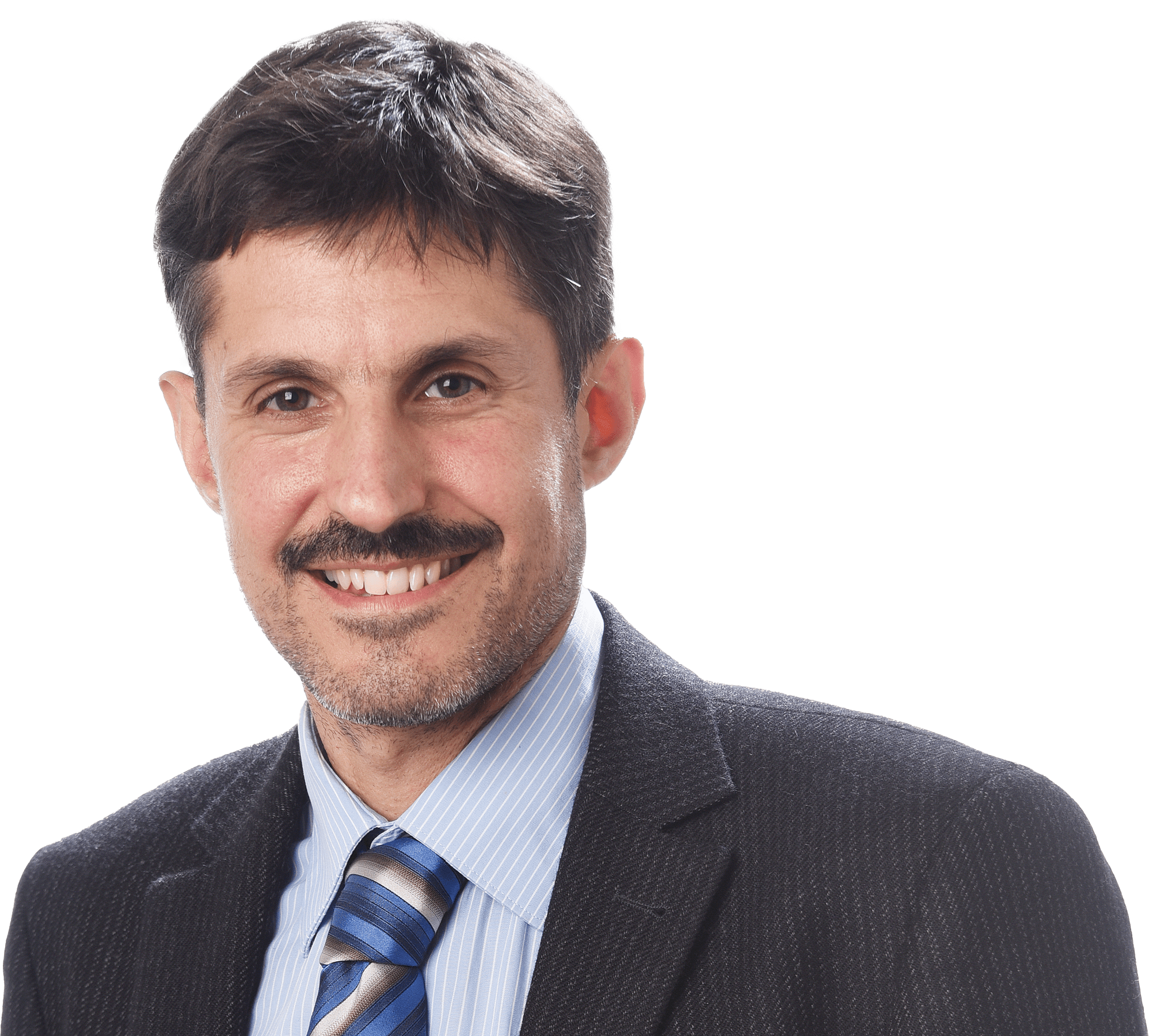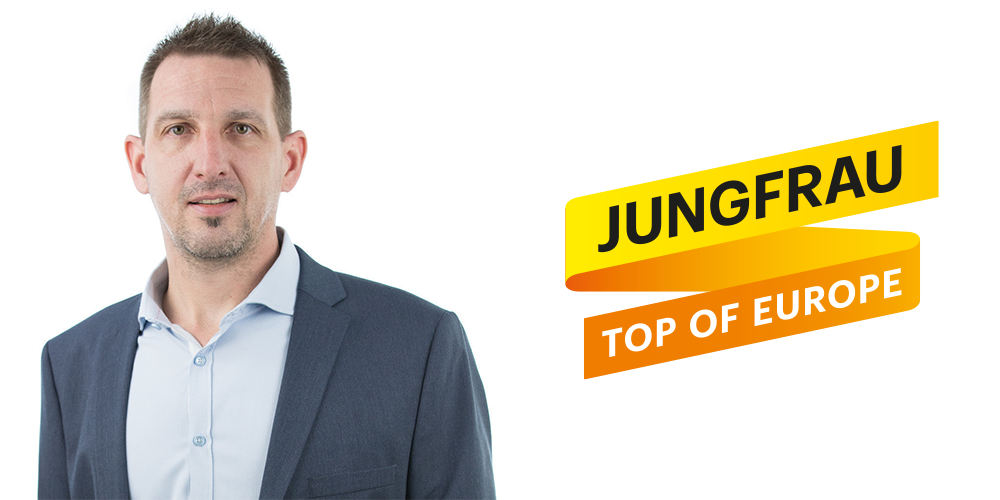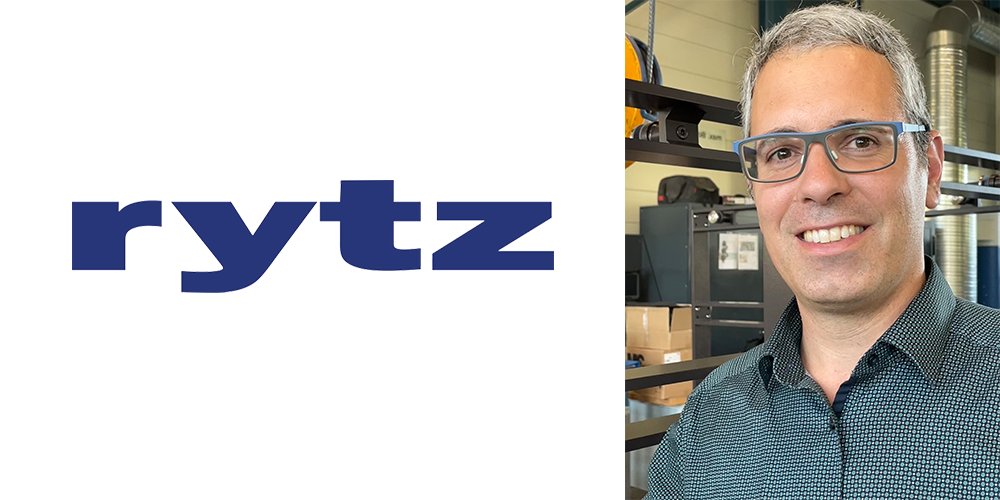ISO 14001:2015 – Certification of environmental management systems
Turn sustainable commitment into a strategic advantage with ISO 14001:2015. This globally recognised standard defines the criteria for an effective environmental management system (EMS) and is applicable to organisations of all sizes and industry sectors. It provides a systematic framework for continuously improving environmental performance, minimising risks, exploiting opportunities and using resources more efficiently. With an EMS certified by SQS in accordance with ISO 14001:2015, you send a strong and credible signal, both internally and externally, of your systematic commitment to environmental management and sustainability.
ISO 14001 Product manager
Markus Hess

Accreditation by the Swiss Accreditation Service (SAS)

Our certificates are valid and recognised internationally

We have been certifying management systems since 1983

Around 7 000 customers trust our services
Environmental management in accordance with ISO 14001:2015
The ISO 14001:2015 standard is the global standard for environmental management systems. Its catalogue of requirements enables you to align your company's processes and workflows more and more closely with relevant ecological principles. By the way: The number «2015» refers to the year of the last revision. ISO standards are regularly reviewed and further developed.
Certification by the SQS
The SQS ISO 14001 certificate gives customers and other stakeholders the certainty that you manage your company in accordance with environmental compatibility and sustainability criteria. The certificate is valid for three years. After the initial certification, a surveillance audit takes place in each of the following two years. These shorter audits check whether the standard requirements are being met and whether the environmental management system is being further developed. However, the audits are more than just control visits: The experienced SQS auditors provide you with a valuable external view of your organisation and tips for continuous improvement.
Recognition and accreditation
Not every ISO certificate is worth the same. The expertise and reputation of the certification body are decisive in determining a certificate's standing on the market.
SQS is by far the leading provider of management system certificates in Switzerland. It was the first to be accredited by the Swiss Accreditation Service (SAS), which is the federal authority that supervises the certification bodies. Inspectors are therefore themselves checked by the SAS for their expertise and conformity with norm requirements. Lastly, SQS is part of a global network.
For these reasons, SQS certificates for management systems in accordance with ISO 14001 and many other ISO standards are recognised on all continents. They are your door opener to new markets.
Combinations of certificates
Many of our customers who work with ISO 14001 combine their certifications. ISO 9001 for quality management functions as the basic standard. Other topics and standards can be integrated - for example ISO 26000 on social responsibility, ISO 31000 on risk management, ISO 45001 on occupational health and safety or ISO 50001 on energy management. This allows you to create important synergies.
The harmonised structure of the ISO standards facilitates such integrated management systems because the various standards have the same topics and core texts. This allows you to avoid duplication, exploit synergies and improve and certify your organisation with regard to various objectives.

Hello, I am Markus Hess
If sustainable corporate governance is important to you and you set your targets with a view to systematically improving your environmental performance, certification of the management system will enable you to reach the next milestone in the orientation of your company. Do you have a question about ISO certifications or sustainability products from SQS? We are happy to help you. Our account management team and I, as product manager, will provide you with information at any time or forward your questions to our experienced auditors. We want to make access to certified management systems as easy as possible for you.
Please let us know how we can help. We look forward to hearing from you!
Kind regards,
Markus Hess
Improvement of environmental performance
The focus of ISO 14001 lies on environmental performance. A certified environmental management system (EMS) supports both the positive impact on the environment and the impact of the ecological environment on the organisation - in line with the principle of dual materiality.
Recognition and market access
ISO 14001 certificates issued by SQS are recognised worldwide. This is due to the high profile of ISO and the «Swissness» of the certificate. A certified environmental management system thus strengthens the credibility of your company and the trust of customers, authorities and other stakeholders.
Clear and optimised processes
ISO 14001 promotes process-orientated management. Organisations are encouraged to organise, monitor and continuously improve their processes. This leads to more sustainability in the ecological area, increased efficiency and improved handling of resources.
Continuous improvement
Continuous improvement is a fundamental principle of ISO 14001. As part of the annual audits, experienced SQS auditors will provide you with valuable, specific information on where your EMS does not (yet) fully fulfil this requirement.
Recognising opportunities and risks
ISO 14001 requires organisations to keep an eye on their context in order to identify and assess risks and opportunities. This ensures that you do not miss any relevant developments or influences, even in times of accelerated change - and you act accordingly with foresight.
Instrument for sustainability
Customers, authorities, employees and other stakeholders demand that companies operate sustainably. You can use your certified environmental management to make your organisation fit for these requirements, to operate in an environmentally conscious and more sustainable manner in the long term and to communicate what you have achieved accordingly.
If you feel you are well-versed in terms of EMS, you are welcome to register for certification using the form above. Otherwise, your path to ISO certification could look like this:
#1 – Training/establishing a EMS
Our experienced auditors share their expertise in practically orientated training courses on ISO 14001. Ensure optimal preparation for the introduction of the EMS and the certification of your company.
#2 – Register for certification
Once you have registered for certification, you can benefit from a preliminary discussion or pre-audit. The pre-audit identifies system-relevant gaps and enables efficient certification.
#3 – Auditing
Firstly, we review your system documentation, assess your readiness for certification and draw up a detailed audit plan together with you. Our auditors then visit your company to inspect the relevant test objects and draw up a report.
#4 – Certificate valid for three years
If the report is positive, you will receive the ISO 14001 certificate in digital and printed form. You can advertise your certified status internally and externally for three years. Annual audits ensure compliance with the norm and enable continuous improvements. Comprehensive recertification takes place after three years.
Jungfraubahnen Management AG
850 employees – Sector Public transport and tourism
The challenge
«The Jungfraubahn Group is one of the largest employers in the region and at the same time the economic engine, which means that the Group has a special responsibility towards the economy, the environment and society.»
Solution
«Strategic objectives have therefore been defined for the three dimensions of environment, people and governance. In addition to achieving these objectives, the focus is on sensitising employees' awareness with regard to a resource-conserving approach to the environment and people. This is where ISO 14001 comes into play.»
Reto Oswald, Head of Quality, Safety and Risk Management


Rytz AG
85 employees – steel and metal construction, special façades, glass construction and flood defence sector
The challenge
«As a company in the commercial and industrial construction sector with regional roots, Rytz AG is faced with the challenge of implementing complex construction projects efficiently and in accordance with the highest quality standards. In doing so, we are conscious of our responsibility towards the environment, our customers and future generations.»
Solution
«We decided to undergo the ISO 14001 certification process with SQS to take our sustainability strategy a step further. Certification helps us to establish environmentally friendly standards within our company, increase the efficiency of our processes and raise awareness of ecologically responsible conduct amongst our employees – all for the benefit of our customers and to strengthen our market position.»
Marco Rytz, CEO
The time required for ISO 14001 certification depends on various factors, for example the size and complexity of the company, the expertise of the employees involved, the software solution or the time available to establish the system. It usually takes between six and twelve months to develop the processes and applicable documents and to prepare for the certification audit, which takes at least one day. For large companies, the audit can take several days.
Once the initial certification has been successfully issued, the company receives a certificate that is valid for three years. In each of the following two years, a maintenance audit – which is smaller in scope – is carried out. These ensure that the requirements of the norm are met on an ongoing basis and that the company continues to develop. Before the certificate expires, a recertification audit is carried out and the cycle starts again.
The costs depend on various factors, for example the size and complexity of the company, the number of full-time employees or the number of locations requiring certification. One-off or ongoing costs for establishing and operating the system, such as internal staff costs, training for employees, consultancy fees and licences for process management software, must be taken into account. It is advisable to make a cost estimate in advance. ISO 14001 certification is of strategic importance and represents an investment in the future of the company.
SQS is a certification body authorised by the Swiss Accreditation Service (SAS). This means we are not permitted to advise you on establishing a quality or environmental management system. The separation between consulting and certification is a key factor for our independence and therefore for the credibility of our certificates. However, we do offer training courses for the establishment and continuous developmen of management systems; these are conducted by our experienced auditors.
The certification body is responsible for carrying out the certification audit in accordance with the regulatory requirements and checking the company for conformity with the requirements of ISO 14001. It is important to select an accredited certification body that is recognised by a national accreditation body, such as SQS. This is the only way to ensure that the certificate is widely recognised, including internationally.
All valid certificates issued by SQS can be found on our website under Certified organisations. To search for a company, enter the registration number.
Yes, a company can have several certifications at the same time, for management systems in accordance with ISO 9001 (quality management), ISO 14001 (environmental management), ISO 45001 (occupational health and safety) and others. These norms complement each other and enable companies to create an integrated management system that takes into account the various requirements of customers, employees and other stakeholders.
If the requirements of the norm are not met and the lead auditor declares so-called major or minor non-conformities, the company must rectify these within a specified period. If the company is unable to do so, the certification body may impose a suspension of a maximum of six months or cancel the certification procedure. However, these cases are extremely rare.
The company should ensure that all employees understand the requirements of the norm and are able to implement them in day-to-day operations. Training courses and programmes can help to raise awareness of the norm and its benefits and thus ensure the EMS operates effectively and efficiently.
ISO 14001 and ISO 50001 certification are seamlessly integrated to help organisations improve their environmental performance and energy efficiency. While ISO 14001 focuses on the comprehensive environmental management system and helps organisations to positively and systematically influence their environmental impact, ISO 50001 focuses specifically on improving energy efficiency. Together, they provide a framework that enables organisations to both minimise their environmental footprint and optimise energy consumption and energy costs by integrating environmentally friendly practices and energy efficiency measures.
ISO 14001 and ISO 26000 serve different purposes, but complement each other in their core objective of promoting sustainable and responsible business practices. ISO 14001 is a certifiable standard while ISO 26000 serves as a guide to social responsibility and is not intended for certification. ISO 26000 provides guidelines on how organisations can integrate social responsibility into their values and practices, including environmental aspects. ISO 26000 can therefore support you in incorporating the principles of social responsibility into your environmental management system in accordance with ISO 14001.
Both ISO 14001 and EMAS (Eco-Management and Audit Scheme) are used for environmentally friendly business management, but there are some differences. ISO 14001 is a globally recognised standard for environmental management systems and provides a framework for the continuous improvement of an organisation's environmental performance. EMAS is established by law in the EU. It goes beyond the requirements of ISO 14001 and includes a public environmental statement or reporting obligation in order to increase transparency and credibility. EMAS is therefore considered to be more demanding. In Switzerland, only ISO 14001 is applied.
ISO 14001, esg2go and Circular Globe offer different approaches to promoting sustainability in organisations. ISO 14001 focuses on an environmental management system that improves an organisation's environmental performance. esg2go is a digital solution for assessing and reporting on a company's environmental, social and governance (ESG) performance. Circular Globe promotes the transition to a circular economy by using a maturity model to help companies implement circular business models and practices. For a holistic sustainability strategy, it can make sense to use ISO 14001 as well as esg2go and Circular Globe or similar tools.
Further information on esg2go: https://esg2go.org/
Further information on Circular Globe: https://www.circular-globe.com/











